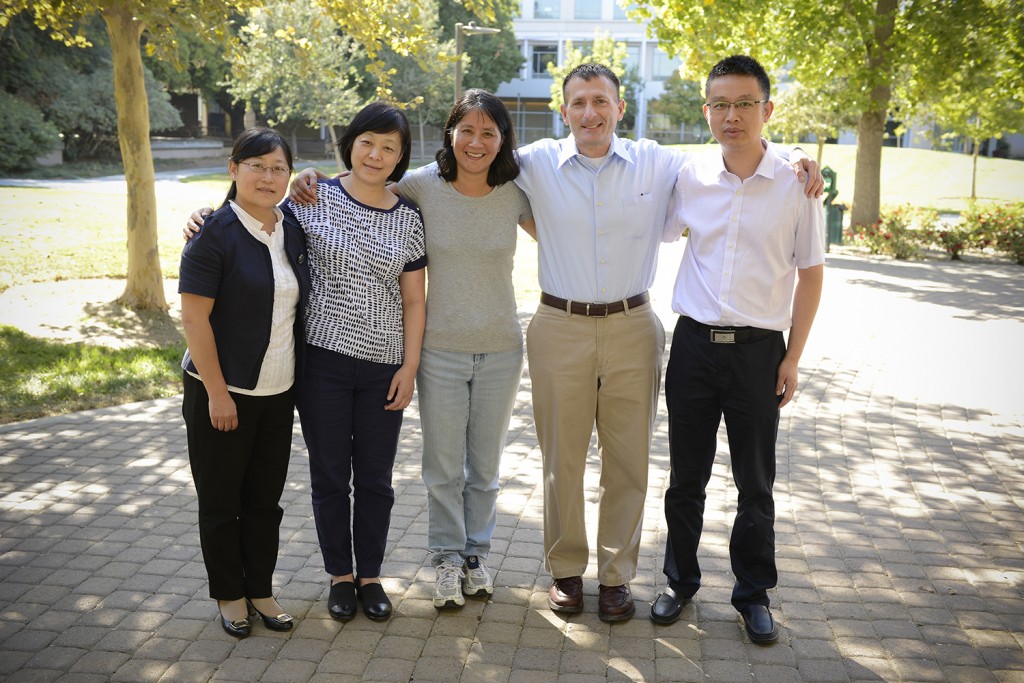Workshop supports protection of our food supply
November 2, 2016

WIFSS hosted a Food Animal Residue Avoidance Database (FARAD) and One Health Curriculum Workshop September 6 – 17, 2016. Sponsored through a grant from the International Veterinary Collaboration for China (IVCC) and Zoetis, this program brought three faculty from Nanjing Agricultural University (NAU) College of Veterinary Medicine to UC Davis/WIFSS to attend an intensive 10 day program. In attendance from NAU were professors Ruqian Zhao, Liping Wang, and Ruibing Cao. Session topics during week one included curriculum development related to One Health in food safety, antibiotic residues and regulatory issues affecting the USA, outreach activities to improve dairy operations, and methods for blended learning for adult learners.
Sharing their expertise the first week of the workshop were Ria de Grassi, an agricultural issues and policy strategist and Dr. Jessica Light of Zoetis, along with faculty and staff from the School of Veterinary Medicine and WIFSS, including Drs. John Angelos, Amanda Arens, Bennie Osburn, Michael Payne, Birgit Puschner, and David Goldenberg and Heather Johnson.
In week two, faculty attended sessions led by Dr. Lisa Tell, Dr. Tara Mamulak, Scott Wetzlich, and Maaike Clapham, of UC Davis, and Carolyn Whitford from the University of Florida. Zhao, Wang, and Cao learned how FARAD functions to assist veterinarians and producers in maintaining a food supply free of drug residues. The workshop launched future working relationships between the School of Veterinary Medicine, WIFSS, and NAU, to increase educational and research collaborations related to One Health in food safety and food supply drug residue avoidance.
The Food Animal Residue Avoidance Databank program is maintained by a consortium of universities, including the University of California-Davis, University of Florida, Kansas State University and North Carolina State University. The program offers science-based expert advice to help mitigate unsafe chemical residues (drugs, pesticides, biotoxins, etc.) in products derived from food animals.
